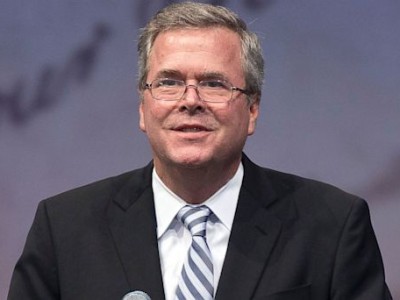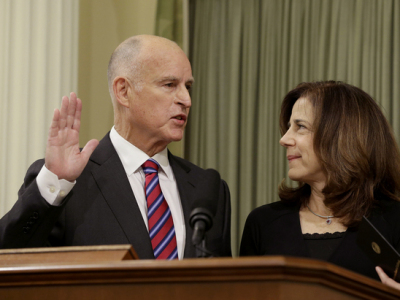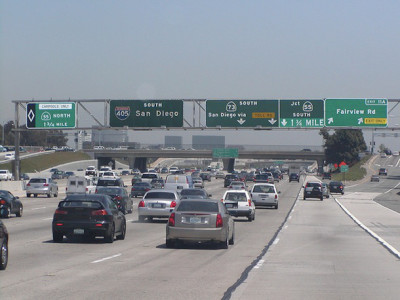Climate Change
BREAKING: SB 32 and SB 350 both pass in the Senate
Key elements of California’s new climate legislation package clear major hurdle
For those following the fate of this year’s suite of California climate legislation, Senator Pavley’s SB 32 and Senator De Leon’s SB 350 were brought to a vote in the Senate this morning and both passed easily. I wrote about these bills here. SB 32 would enshrine California’s goal, already set forth in executive orders, of reducing …
Continue reading “BREAKING: SB 32 and SB 350 both pass in the Senate”
CONTINUE READINGJeb, the Pope and Climate Change
Maybe we need to pay more attention to the link between religion and environmentalism.
Jeb Bush’s environmental views seem to be evolving. At a recent speech at Liberty University, he had this to say about environmental protection: “America’s environmental debates, likewise, can be too coldly economical, too sterile of life . . . Christians see in nature and all God’s creatures designs grander than any of man’s own devising, the …
Continue reading “Jeb, the Pope and Climate Change”
CONTINUE READINGCalifornia Sets 2030 Climate Emissions Target
And it looks like the right goal
Today, California Governor Jerry Brown signed an executive order setting a statewide greenhouse gas emissions target to be achieved by 2030, at 40% below 1990 levels. It’s an historic announcement that puts California in the vanguard of jurisdictions who have committed to goals in this 2030 timeframe (it matches the E.U.’s). California’s new 2030 target takes its place alongside, …
Continue reading “California Sets 2030 Climate Emissions Target”
CONTINUE READINGCarbon Vouchers: A Small-Government Approach to Climate Action
How to limit climate change without giving the Feds enforcement powers or revenue.
What I’m going to sketch here isn’t a zero government approach. But the government’s role is very limited: federal agencies don’t do any enforcement and the government doesn’t touch any revenue from the scheme. So this approach deals with the concern that a carbon tax or something similar would either expand EPA’s ability to abuse …
Continue reading “Carbon Vouchers: A Small-Government Approach to Climate Action”
CONTINUE READINGClimate Gag Rules and the First Amendment
Are climate gag rules constitutional? Sometimes yes, sometimes no.
There have been recent reports about state agencies that forbid employees from discussing climate change. Since this is obviously a restriction on speech, it’s natural to wonder what the First Amendment has to say on the subject. The answer depends in large part on the kind of employee speech at issue. Let’s being with a ban …
Continue reading “Climate Gag Rules and the First Amendment”
CONTINUE READINGStick a Lemon In It
Are recent East Bay water troubles a taste of what lies ahead?
What makes a city world-renowned? For New York (according to the NYC Department of Environmental Protection), it’s the quality of its drinking water. Should this be so surprising? After all, what more fundamental connection does a city have to its residents and visitors than the life-sustaining water that it provides? Recent events in San Francisco’s …
Continue reading “Stick a Lemon In It”
CONTINUE READINGCalifornia Supreme Court to Decide Major CEQA, Climate Change Case
Justices’ Latest Grant of Review Continues Supreme Court’s Focus on Environmental Law
To paraphrase former President Ronald Reagan, there they go again. The California Supreme Court on Wednesday granted review in an important case at the intersection of the California Environmental Quality Act (CEQA) and one of the state’s most important climate change laws. The case, Cleveland National Forest Foundation v. San Diego Association of Governments, is the …
Continue reading “California Supreme Court to Decide Major CEQA, Climate Change Case”
CONTINUE READINGLet’s Strengthen California’s Climate Goals
Tackling the post-2020 era
A few days ago, I wrote a post taking issue with the idea that AB 32’s emissions limit expires in 2020. Here’s a follow-up. Even with AB 32’s influence beyond 2020, California is right to want to do more. Through the leadership of Senators De Leon, Pavley, and others in the legislature, there’s a package …
Continue reading “Let’s Strengthen California’s Climate Goals”
CONTINUE READINGAB 32 and post-2020 climate goals
What does California’s Global Warming Solutions Act say about emissions after 2020?
I have heard some references, recently, to AB 32 “expiring” in 2020. It’s easy to understand where this idea comes from: California’s premiere climate change law was passed in 2006 and sets a goal for the state to return to 1990 levels of greenhouse gas emissions by a deadline of 2020. Moreover, one of the …
Continue reading “AB 32 and post-2020 climate goals”
CONTINUE READINGClimate Engineering: National Academy Committee recommends starting research (with limits)
An NAS report on controversial engineered responses to climate change gets all the big things right, but avoids the hardest questions
Earlier this week, the National Research Council Committee on Geoengineering Climate released two reports, “Climate Intervention: Carbon Dioxide Removal and Reliable Sequestration” and “Climate Intervention: Reflecting Sunlight to Cool Earth.” Requested and funded by several US federal departments – NASA, NOAA, DOE, and the cutely labeled “U.S. Intelligence Community” – this report is the first …
CONTINUE READING










